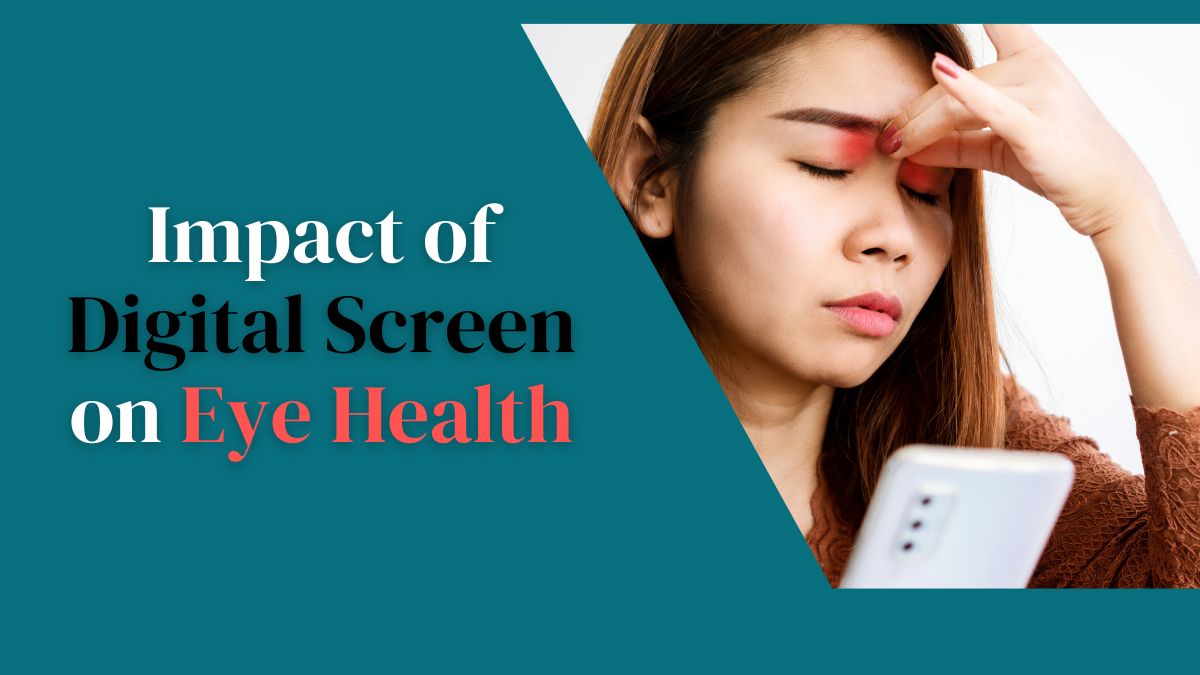Impact of Digital Screen on Eye Health

In today's digital age, our lives are intertwined with screens—whether it's for work, entertainment, or communication. From computers and smartphones to tablets and televisions, the average person spends a significant portion of their day looking at digital devices. While these screens have undoubtedly made life more convenient, they also pose a growing concern for eye health. This blog explores the impact of digital screens on eye health and offers insights into how you can seek advice from Best Eye Surgeon in Delhi to protect your vision.
The Rise of Digital Eye Strain
Digital eye strain, also known as computer vision syndrome, is one of the most common issues faced by people who spend prolonged periods in front of screens. Symptoms include dry eyes, blurred vision, headaches, neck and shoulder pain, and difficulty focusing. These symptoms arise due to the prolonged focus on a screen, reduced blinking, and exposure to blue light emitted by digital devices.
- Dry Eyes and Irritation: When we stare at screens, our blink rate decreases significantly. Blinking is essential as it helps moisten the eyes and maintain a protective layer of tears. Reduced blinking leads to dryness, irritation, and discomfort.
- Blue Light Exposure: Digital screens emit blue light, which can penetrate the eye and reach the retina. Prolonged exposure to blue light has been linked to potential retinal damage and an increased risk of developing macular degeneration, a leading cause of vision loss in older adults.
- Increased Risk of Myopia: Studies have shown that excessive screen time, especially among children, can contribute to the development of myopia (nearsightedness). The constant focus on nearby objects, such as screens, can cause the eye to adapt by elongating, leading to difficulty in seeing distant objects.
Long-Term Impact on Eye Health
While digital eye strain can cause immediate discomfort, the long-term impact of excessive screen time is more concerning. Conditions such as cataracts, macular degeneration, and even early onset of presbyopia (age-related farsightedness) have been linked to prolonged exposure to digital screens.
- Cataracts and Digital Screens: Cataracts are a common age-related condition where the eye's lens becomes cloudy, leading to impaired vision. Although cataracts are primarily caused by aging, lifestyle factors such as prolonged screen time and blue light exposure may accelerate their development. Consulting a renowned cataract surgeon in Delhi is crucial if you notice any symptoms of cataracts, such as blurry vision or difficulty seeing in low light.
- Macular Degeneration: Prolonged exposure to blue light can increase the risk of macular degeneration, a condition that affects the central part of the retina and leads to loss of central vision. While more research is needed, protecting your eyes from excessive blue light exposure is essential in reducing this risk.
Tips to Protect Your Eyes from Digital Screen Impact
Given the ubiquitous presence of digital screens in our lives, it's essential to adopt strategies to protect your eyes. Here are some practical tips to reduce the impact of screens on your eye health:
- Follow the 20-20-20 Rule: Every 20 minutes, take a 20-second break and look at something 20 feet away. This practice helps reduce eye strain and allows your eyes to refocus.
- Adjust Screen Settings: Reduce the brightness of your screen to match the ambient lighting in your environment. Increasing text size and adjusting contrast can also minimize strain.
- Use Blue Light Filters: Many devices now offer blue light filters or "night mode" settings, which reduce blue light emission. Consider using blue light-blocking glasses as an additional measure.
- Maintain Proper Distance: Keep your screen at least an arm's length away from your eyes and position it slightly below eye level. This helps reduce strain on the eyes and neck.
- Blink Often: Make a conscious effort to blink more frequently while using screens to keep your eyes moist and reduce the risk of dry eyes.
- Regular Eye Check-Ups: Regular eye check-ups with a top ophthalmologist in Delhi are essential to monitor your eye health and detect any early signs of vision problems. Early intervention can prevent further deterioration and maintain optimal eye health.
Conclusion
The impact of digital screens on eye health is undeniable. While the convenience of digital devices is unmatched, it’s essential to be mindful of the risks they pose to our vision. By adopting healthy screen habits and seeking regular eye care from professionals, such as the best eye surgeon in Delhi, you can protect your eyes from the adverse effects of screen time. Whether you're experiencing symptoms of digital eye strain or have concerns about conditions like cataracts, consulting a qualified top ophthalmologist in Delhi is the best step toward preserving your vision for the future.

